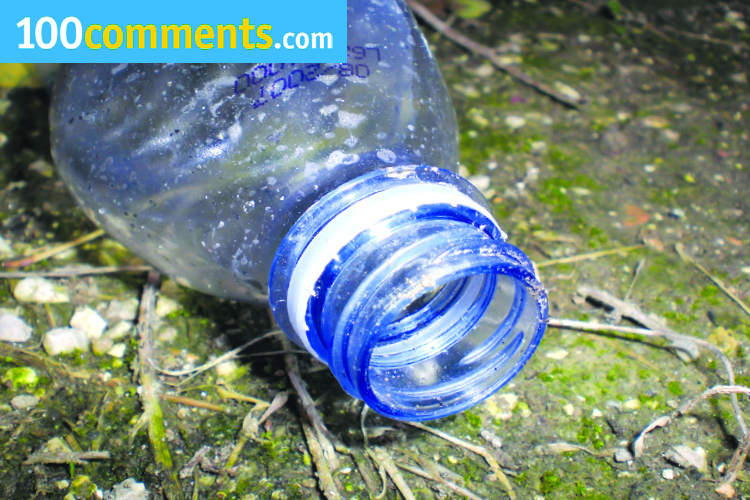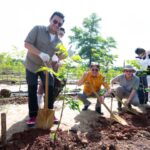If you have read the previous article, you will recall me mentioning the difference between Malaysians and the Dutch in caring for the environment.
Let me remind you that in no way I am taking a ‘we are better than you’ position in highlighting the mistakes that are committed by many Malaysians when comes to caring for the environment. I hope my observations during my short visit to your lovely country will be an eye-opener on how ALL OF US can collectively do a better job in caring for the environment.
Table of Contents
Where do we differ?
A plastic bag for my chewing gum?
Whenever I buy small items like chewing gum or even bottled water, the salesperson at the counter always hands me a plastic bag. This really surprises me. The cashier never finds out whether I have my own bag (I always carry one) or even whether I need a plastic bag in the first place! This is something new and almost unbelievable to me, because back in the Netherlands, even though plastic bags are available in the supermarkets, you have to take them yourself, ask for them, or even pay for each one (It’s good news to hear some supermarkets in Malaysia have recently introduced this practice).
By doing so, the stores compel you to bring your own bags which eventually helps us to save money, and more importantly Mother Nature. Back in the Netherlands, even if we take home a plastic bag, we remind ourselves to bring them along for future shopping, or even reuse them for other purposes. When I was a child, I even made them into kites!
Why are lights always switched on?
It strikes me hard that in Malaysia a lot of building premises are lighted all the time. Even at night you can see a lot of lights in houses and offices switched on. In the Netherlands you won’t see this so much, because we are used to turning lights off when we are not using the space. With technology, we also have moving sensors and time switches to automatically shut off lights.
The moving sensors are placed in indoor lights but mainly on outdoor lights. These lights are turned off and on automatically, which saves lots of energy. My family also uses ‘time-switches’ at home. A good example of this is when we light up our Christmas tree. To conserve energy, the tree lights are switched off between 12 midnight to six in the morning with the aid of time switch.
Where are the bicycles?
All I see in Malaysia are cars and motorcycles. Only once in a while I see someone on a bicycle, but compared to the Netherlands, the numbers are very small. In my country, we cycle to office, university, cafes, to relatives’ houses and to many other places.
I don’t have my driving license and in the Netherlands, I actually don’t need to. The government pays for my public transport pass for the weekends and during the week, I cycle. The distances between cities in my country are relatively short and there are cycling paths everywhere. Of course, I know the weather in Malaysia is very hot, and the highways are too crowded and dangerous, but I strongly feel cycling should be implemented on a large scale in Malaysia, maybe on weekends or on designated areas and during certain days. Cycling not only benefits nature but your health too.
Wow, is it normal for everyone to litter here?
I’ll never forget an incident when I was traveling around Malaysia. I saw a child threw a plastic wrapper on the ground, and his father seeing this, didn’t even chide his kid. I couldn’t believe my eyes, because my parents would never have accepted this kind of behaviour. I realize now that taking care of nature comes easily without a second thought when you have learned it in your childhood.
In Malaysia I’ve seen so many people throw rubbish on the ground without a second thought. The worst part is parents are doing this in front of their children. I have seen many people throwing empty cans, food wrappers, and all sorts of things from their cars or while walking on the streets. If everyone around you, including your parents, are doing the same thing, how will anyone learn the right way? I believe education is the only way to help change people’s mindsets on cleanliness and caring for the environment.
When I was younger, I was reprimanded by my parents when they saw me throwing things on the ground and was asked to pick it up and put them into a garbage bin. Because of this supervision, it has become a habit for me. When children are taught to care for the environment from a very young age, it becomes a habit for children to protect the environment naturally.
Is green energy too expensive?
This is the name we give to energy harvested from the sun, wind, water, biomass or other sustainable energy sources. Since green energy is not any more expensive than regular energy, a lot of people in the Netherlands use them. Our government is a big consumer of green energy as well.
Besides the regular mills (used to turn grain into flower), the Netherlands are also famous for their energy generating wind turbines. There have been lots of discussions about the turbine parks, because people didn’t like the view, but nowadays we have a lot of these parks, also built in the sea as they provide a lot of green, nature-saving energy.
We don’t get much sunshine in the Netherlands like in Malaysia (sigh!), but many houses in my country harvest solar energy. It’s a common sight to see solar cell panels on many house rooftops in the Netherlands. But I don’t see many houses in Malaysia with solar panels on the rooftop. This is sad because Malaysia enjoys sunshine throughout the year. I believe the cost of installation and maintenance could be a deterrent for many not to utilise solar energy as an alternative energy for their homes and offices.
The Netherlands is so enthusiastic about this green energy that we even have a Solar Team in my university that joins the World Solar Challenge in Australia every two years. The challenge, besides being a fun outing allows students to gather important data on solar energy and how it benefits the environment.
How Malaysians can help save the environment.
Refuse plastic bags
The next time you go shopping bring your own canvas shopping bag. This way you can refuse plastic bags handed out to you. Once a majority of shoppers adopt this policy, we can reduce plastic bag wastage, and move closer towards a ‘greener’ world.
I want to ride my bicycle…
As mentioned before, in cities like KL, it is almost impossible and way too dangerous to ride a bicycle. But when you take the back roads, live in suburban areas or in the outskirts of major cities or even if you are on a holiday, you can always park your car and opt for a bicycle. You can make it a family affair too. Riding a bicycle is good exercise; you can enjoy the beauty of the surroundings and also reduce carbon emission.
If cycling is not for you, you can still contribute to a better environment by taking public transport. If your destination is not too far away it’s better to allocate some time for a healthy, nature-saving walk.
Make environmental care part of your children’s education
Show and teach your children how they can take care of nature by starting them young. If everyone in Malaysia does this, the next generation will take care of the environment and a change in nature-care attitude can be established. But first, you have to change the mindset of the people, especially the children.
Vegetarian/Biological food
In the Netherlands not only people who are concerned about animals become vegetarians but nature lovers also stop eating meat completely or reduce their intake by consuming biological meat and meat substitutes. In the Netherlands, these are easily available because the supermarkets offer a lot of different types of tasty biological/organic meat and substitutes like veggie-burgers. Studies have shown that the meat industry plays a strong role in destroying the quality of our air, water and earth and is also instrumental in contributing to global warming.
Sharing reading materials
It’s very common in the Netherlands to share things. I often borrow books from friends, family or the library, and my father always takes magazines and newspapers to my grandmother’s house after reading them. It is also common for people to share newspapers with their neighbours to save money and the environment. It is a great and easy way to recycle and reuse the reading materials, and contribute to a greener world. I heard this is not practiced in Malaysia a lot.
I hope my observations have been helpful to most Malaysians to get into the act of caring for the environment. I am now in the Netherlands to continue my studies. I enjoyed my short stay in Malaysia and hope to come back soon to enjoy the food, meet the friendly people, and of course, bask under the sun.
















